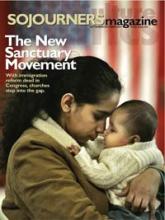Two years after a massive and unwieldy convergence of labor, environmental, and social activists shut down the "Seattle Round" of World Trade Organization negotiations in 1999, the first World Social Forum (WSF) convened in Porto Alegre, Brazil, in part inspired by the Seattle protest.
"What American activists did on the streets in Seattle, international organizers brought inside a building and opened a space for dialogue and strategizing," according to Gustavo Codas, who served on the first WSF planning council. Seattle provided momentum to a new movement, led by the international community, to confront the devastating effects of globalization on marginalized peoples.
The World Social Forum—timed to balance the media's coverage of the World Economic Forum held each year in Davos, Switzerland—has continued to convene annually. It has given birth to several continental and national social forums, and this June in Atlanta, for the first time, a social forum was held in the United States.
Organizers of the U.S. Social Forum (USSF) faced widespread public ignorance of the World Social Forum, exacerbated by lackluster mainstream press coverage. Alice Lovelace, USSF national lead staff organizer, said, "We knew it would be impossible to organize [USSF] without a lot of work. People needed to practice the process. … The idea of convening for five days with no agenda and no star speakers was totally baffling to people."
The USSF displayed a vibrant and vital collection of U.S. progressive campaigns and stances. Local food sovereignty advocates compared notes, socialists debated the finer points of worker-owned production, and Dennis Kucinich-for-president supporters passed out T-shirts just outside the forum grounds.
Read the Full Article
